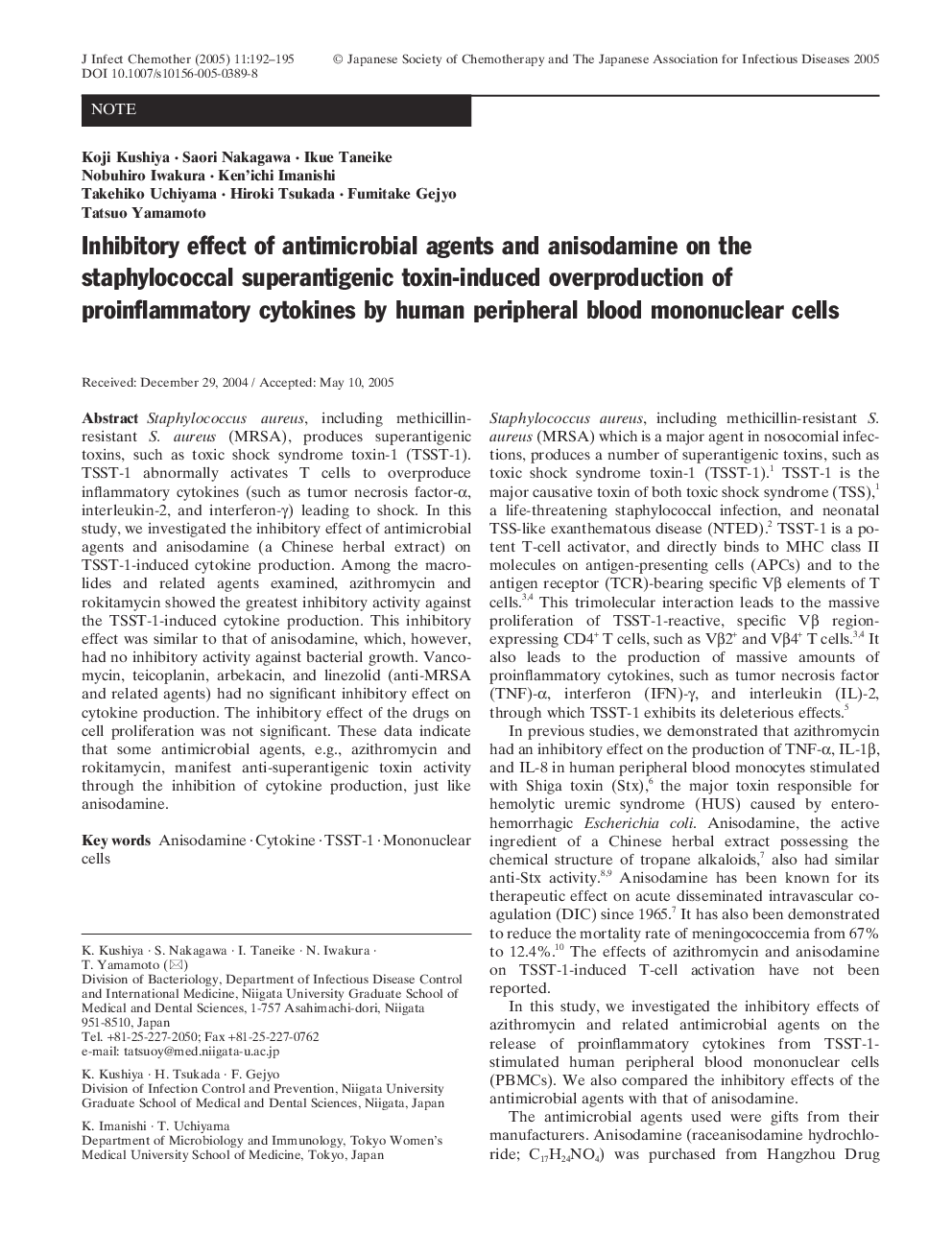| کد مقاله | کد نشریه | سال انتشار | مقاله انگلیسی | نسخه تمام متن |
|---|---|---|---|---|
| 9271394 | 1220022 | 2005 | 4 صفحه PDF | دانلود رایگان |
عنوان انگلیسی مقاله ISI
Inhibitory effect of antimicrobial agents and anisodamine on the staphylococcal superantigenic toxin-induced overproduction of proinflammatory cytokines by human peripheral blood mononuclear cells
دانلود مقاله + سفارش ترجمه
دانلود مقاله ISI انگلیسی
رایگان برای ایرانیان
موضوعات مرتبط
علوم زیستی و بیوفناوری
ایمنی شناسی و میکروب شناسی
میکروبیولوژی و بیوتکنولوژی کاربردی
پیش نمایش صفحه اول مقاله

چکیده انگلیسی
Staphylococcus aureus, including methicillin-resistant S. aureus (MRSA), produces superantigenictoxins, such as toxic shock syndrome toxin-1 (TSST-1). TSST-1 abnormally activates T cells to overproduce inflammatory cytokines (such as tumor necrosis factor-α, interleukin-2, and interferon-γ) leading to shock. In this study, we investigated the inhibitory effect of antimicrobial agents and anisodamine (a Chinese herbal extract) on TSST-1-induced cytokine production. Among the macrolides and related agents examined, azithromycin and rokitamycin showed the greatest inhibitory activity against the TSST-1-induced cytokine production. This inhibitory effect was similar to that of anisodamine, which, however, had no inhibitory activity against bacterial growth. Vancomycin, teicoplanin, arbekacin, and linezolid (anti-MRSA and related agents) had no significant inhibitory effect on cytokine production. The inhibitory effect of the drugs on cell proliferation was not significant. These data indicate that some antimicrobial agents, e.g., azithromycin and rokitamycin, manifest anti-superantigenic toxin activity through the inhibition of cytokine production, just like anisodamine.
ناشر
Database: Elsevier - ScienceDirect (ساینس دایرکت)
Journal: Journal of Infection and Chemotherapy - Volume 11, Issue 4, 2005, Pages 192-195
Journal: Journal of Infection and Chemotherapy - Volume 11, Issue 4, 2005, Pages 192-195
نویسندگان
Koji Kushiya, Saori Nakagawa, Ikue Taneike, Nobuhiro Iwakura, Tatsuo Yamamoto, Koji Kushiya, Hiroki Tsukada, Fumitake Gejyo, Ken'ichi Imanishi, Takehiko Uchiyama,